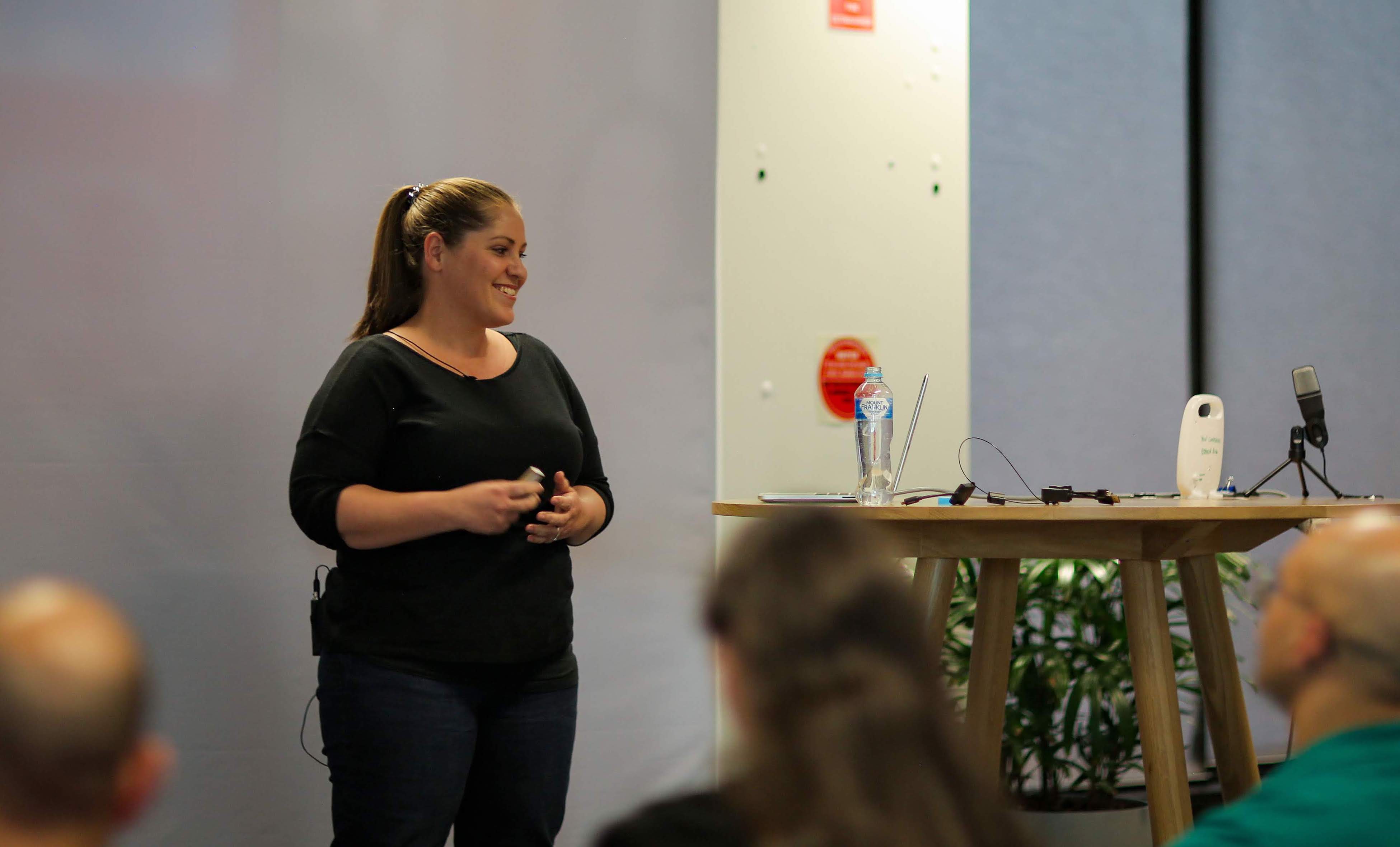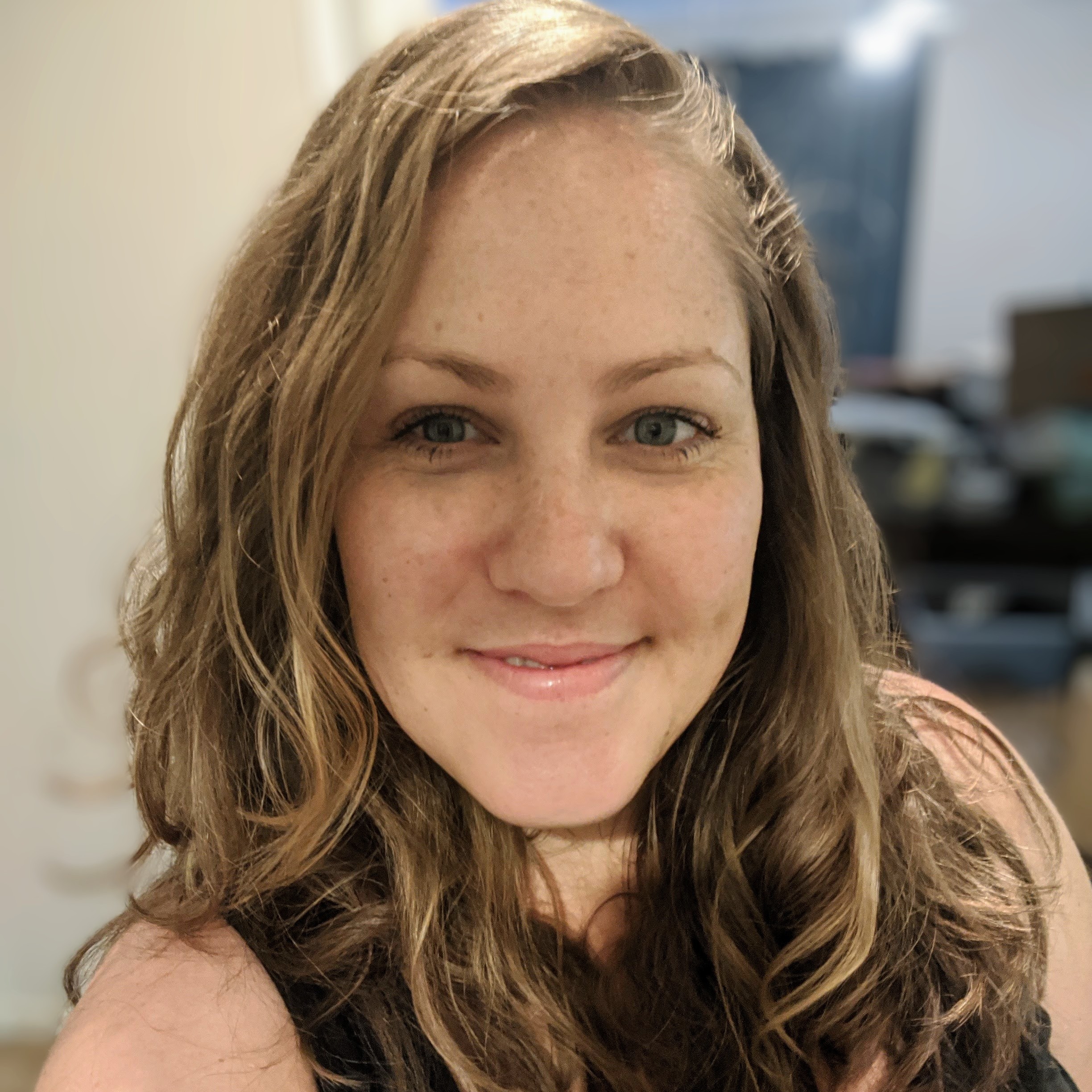The year I became a conference speaker (conclusion)
This post is over two years old, the content may be out of date.
I recently wrote about how I came to be giving 3 conference talks in 3 weeks in 3 different states, and how the first of those talks went. This post talks about the second and third talk and what I've learned through these experiences.
My Australian Speaking Tour (cont...)
Google DevFest, Melbourne
Second stop: Melbourne for Google DevFest. Although also a positive experience, it was quite different from my first talk at LaraconAU.
First of all, DevFest was a multi-track conference, so the 300+ audience was split over 3 rooms. This meant the audience for my talk was only around 50 people (more meetup sized). Whereas Laracon was a single-track conference, meaning the entire audience was in one place for each talk.
Second, the layout was the polar opposite. The room I spoke in at DevFest was bright with natural light and set up casually, with rows of couches at the front and some bar seating at the back. There was a small bar table for my laptop instead of a podium, and a projector on each side of me.

In contrast, my Laracon talk was on a theatre stage with the ambient lights turned off and a spotlight on me. I wasn't able to see the audience properly to gauge responses or feedback.
My DevFest talk was also non-technical, whereas my Laracon talk was the opposite. On one hand, you would think it would be easier because no one can dispute your points when you're discussing and drawing on your personal life experience. But on the other hand, it made me really nervous in the time leading up - I kept thinking "why would anyone want to listen to me talk about myself?!"
There was a small hiccup in the beginning, in that I had forgotten to turn my mic on. Members of the audience let me know during my introduction. Something like this could easily have thrown me off balance (like my slide notes did at Laracon), but it didn't thankfully.
The audience was really friendly, laughing and reacting in all the right places, nodding along and giving me positive feedback throughout. This really helped, and I found my voice to be more even and I could slow down more than previously.

I felt less drained after this talk then my previous talk, I think because it felt more like I had been chatting with a group of new friends than performing under a spotlight.
If you're interested, you can watch the video and check out my slides.
DDD, Adelaide
Last stop: Adelaide for their inaugural DDD.
DDD is a not-for-profit community conference run on a weekend for low cost and I was really happy to be involved in their very first one. Mostly for the bragging rights of course 😄
There were no audio or visual mishaps this time, I'm happy to report!
The room was very wide though, with 3 separate sections, so I struggled to maintain an even spread of eye contact. Particularly as I still needed to refer to my slide notes (which I really need to work on!).
Other than that though, the audience was friendly and I was happy with my talk's pace and speed. I finished about 5 minutes early so there was time for questions from the audience.
I've previously not wanted to take questions after a talk for a few reasons:
- I'm a bit hard of hearing, and concerned I could have trouble hearing the questions;
- I'm anxious about getting one of those attendees that just want to correct or one-up the speaker;
- Worried that I would not know an answer and be proven an imposter!
But I was riding the waves of a smooth talk high, so I accepted questions - and it wasn't a disaster. Some of the questions were really good and think the audience would have benefited from the extra information. I would be happy to take questions again in a similar size and type of audience.

After my talk, I received a lot of positive feedback in person, on twitter and from speakers I admire.
Unfortunately, I did receive negative feedback from one person (some constructive, some less so). To be honest, it really sucked knowing that someone didn't enjoy my talk.
But I also know it had to happen at some point. And recognise that uncomfortable experiences like receiving criticism can be excellent opportunities for personal growth.
So with my 3 talks, in 3 weeks, in 3 states all wrapped up, it was time to return home to Perth for some well deserved R&R!
Thanks for having us Adelaide! Its been a blast! https://t.co/E4k4bXpZg7
— Jess Budd (@jessbudd4) November 24, 2019
What have I learned?
Getting negative feedback feels pretty rough. I knew logically it would be difficult to receive feedback that wasn't positive, but I think I underestimated how difficult it would be to not take it personally. @lara_hogan has some excellent advice on how to sort through feedback in her A List Apart book Demystifying Public Speaking. Her method of deciding what feedback to take on board and what to ignore was really helpful. (And big thanks to the @stringy for working through that exercise with me!)
Writing technical talks is a different process to writing non-technical talks. Most speakers will have a preference for one or the other, but personally I found writing and presenting a non-technical talk to be more difficult. With a technical talk, you can fact-check and be fairly confident what you're saying is correct - you're imparting objective knowledge. But with a non-technical talk, you're sharing your personal experiences and opinions. This had me doubting the value I could bring to the audience.
Double check your microphone is on. You'll often be mic'd up well in advance of starting your talk, so if there isn't a professional AV crew running all the sound, ensure you've done everything you need to. (And even if you think people can hear you fine, it's best practice to use a microphone for anyone in the room that might be hard of hearing).
Speakers are just regular people. I've always looked up to people that speak at conferences as being experts, the top of their field, and somewhat unapproachable. But they're really just normal people, the kind we work with every day, that are happy to have a chat and a laugh.
What next?
I took a few months to reflect on how I felt about presenting again in the future. Now, I'm excited to announce I'll be adding "international" to my speaker bio!
Codemania in New Zealand have an amazing lineup of extremely talented people speaking at their conference in May 2020 and I'm excited to be speaking alongside them.
I hope you've enjoyed reading about my speaking journey, and if you hit me up on twitter I'd love to hear about yours!

Jess is a senior software engineer and web accessibility nerd. When she’s not writing, speaking or tweeting about tech, you’ll find her putting together lego or going on walks with her doggo.